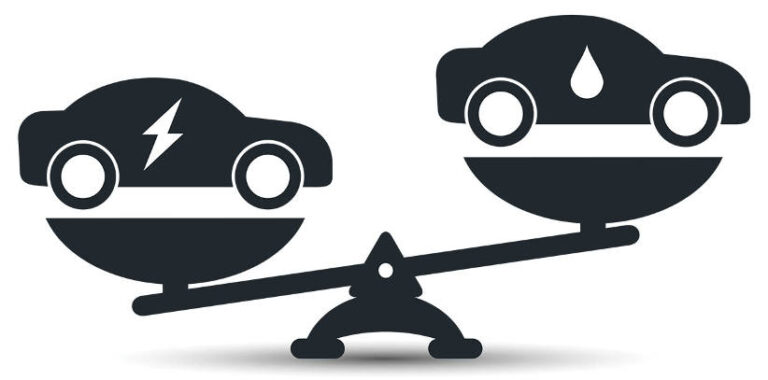New research shows the Federal Government will fall short of their 89 per cent electric vehicle (EV) target by 2030 unless they follow major international economies and introduce Fuel Efficiency Standards. The research commissioned by S&P Global for the Federal Chamber of Automotive Industries (FCAI) shows that EVs will only make up 76 per cent of new vehicle sales in 2030, compared to the Government’s 89 per cent target.
Clean transport advocates Solar Citizens support the prospect of legislated Fuel Efficiency Standards, but caution that to stay in line with a 1.5 degrees warming scenario they should at least be in line with our international trading partners, if not stronger.
“The rest of the world is already charging ahead on the metaphorical EV highway – Europe has had mandatory Fuel Efficiency Standards since 2009 – so it’s about time we also got on board,” said Ajaya Haikerwal, Clean Transport Campaigner at Solar Citizens.
“Given that we’re only starting now, we need to ensure that the standards we set are strong. The science tells us we should be aiming for 100 per cent of new car sales being zero emissions by as early as 2030 to do our part to limit global warming by 1.5 degrees.
“International bodies, including the IEA have highlighted that a 100 per cent target for new zero-emission car sales no later than 2035 is critical for limiting warming to 1.5 degrees. 25 per cent of the current global car market has already committed to achieve this target.
“These standards work with a carrot and stick approach – car makers are subsidised for providing zero-emissions vehicles and penalised for petrol cars. What we don’t want to see is hybrid vehicles being subsidised within a mandatory Fuel Efficiency Standards scheme. This will only set us back further from major economies like the US, Japan and the EU – and we’re already way behind.
“OECD countries produce 80 per cent of the world’s carbon pollution, so it’s important that we’re following the example of – if not beating – our trading partners on measures like Fuel Efficiency Standards if we are to limit warming to 1.5 degrees.
“There are calls by some of the car making industry to go slower on the EV transition. But this means that Australians will be left with expensive, polluting vehicles – a great way for some manufacturers to profit, while leaving Australian consumers in the dust.
“We’re hearing from consumers across the country that Australians want a greater variety of EVs on the market. Strong national Fuel Efficiency Standards Is the first step for making that happen.”
Solar Citizens is running an explainer webinar on the importance of the EV rollout and national Fuel Efficiency Standards on Tuesday August 2nd at 6pm. You can register for the free The EV Revolution: Why Australia is Lagging Behind webinar here: https://www.solarcitizens.org.au/the_ev_revolution






